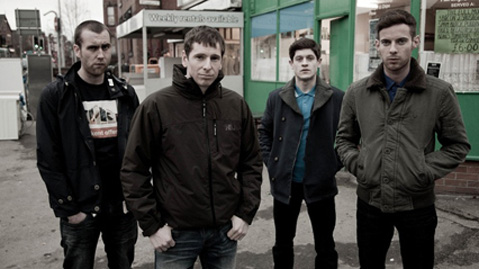Wasteland
Director Rowan Athale

Friendship and revenge are dominant themes in this film about four lads who decide to steal a cache of money from the ruthless local drug kingpin. Sharp dialogue, clever storytelling, and an unexpected twist make this film one not to miss.
I thought Wasteland was an intelligent, very engaging film. What was the impetus for this project?
I am a big fan of the crime genre; the heist subgenre in particular. I am also at the same time a fan of verite and realist kitchen-sink cinema, of which Britain has a great tradition. What I have always loved about realist cinema is it’s ability to conjure a sense of place, to make the environment a character, and to breathe life into well-developed characters. Being from a part of Northern England where many such films are set, seeing these portrayals has always been fascinating; to see this slice-of-life life on the screen.
By nature, however, these films are generally built around showing this slice-of-life, and not around a structured narrative. It occurred to me that it could be a great idea to take the world and the characters more familiar to the kitchen-sink drama, and utilize them to tell an exciting genre story. To take the medium of filmic fantasy, and set it in the real world.
The film has been compared to The Usual Suspects but I felt it was much more relatable; it was about real people pushed into certain behaviors due to untenable situations. Was character development the most important aspect of the film in your mind?
As far as I am concerned, character development is the most important aspect of any film. I’m a genre man, and I love the idea of telling exciting stories, the kind people can watch on a Friday night. But for these stories to work, you have to engage with the characters. That would be true of any great film, whether a thought-provoking drama, an action thriller or a rom-com, the strength it comes from the characters.
With Wasteland, the development of the characters was actually integral to the story in that, as you say, this isn’t a film about career criminals that usually populate the genre, “pulling off one last job.” It is a film about four average nobodies that have to become consummate professional criminals in order to plan and execute an act of criminality of a kind that would never have crossed their minds if not for the circumstances they find themselves in.
The dialogue was smart, clever, and moved the story along brilliantly. How long did it take you to write the script?
I wrote the first draft in around three months, but that was writing for a few hours a day in the evening — while working at a creative agency full time. I’m lucky enough for film making to be my full-time job now, but writing a feature script still takes roughly the same amount of time. Dialogue can come quickly if you fully understand the characters you are writing about. It’s the ideas and the story-beats that take the time in the writing process.
When you’re writing a script, whether or not you’re in front of the computer, there is always a part of you engaged within the story. You don’t have to actually be sat in front of the computer to have those great moments where you suddenly realize where you’re going to take the character and the story. You could be grocery shopping, or running, or a thousand other things when the idea comes to you. I find that whether or not I’m staring at the computer screen for 10 hours straight, I have roughly the same number of ideas per day. And good stories are a string of ideas told through well-drawn characters.
Wasteland is the SBIFF 2013 Closing Night feature, on Sunday, February 3, 7:30 p.m., at the Arlington Theatre.



